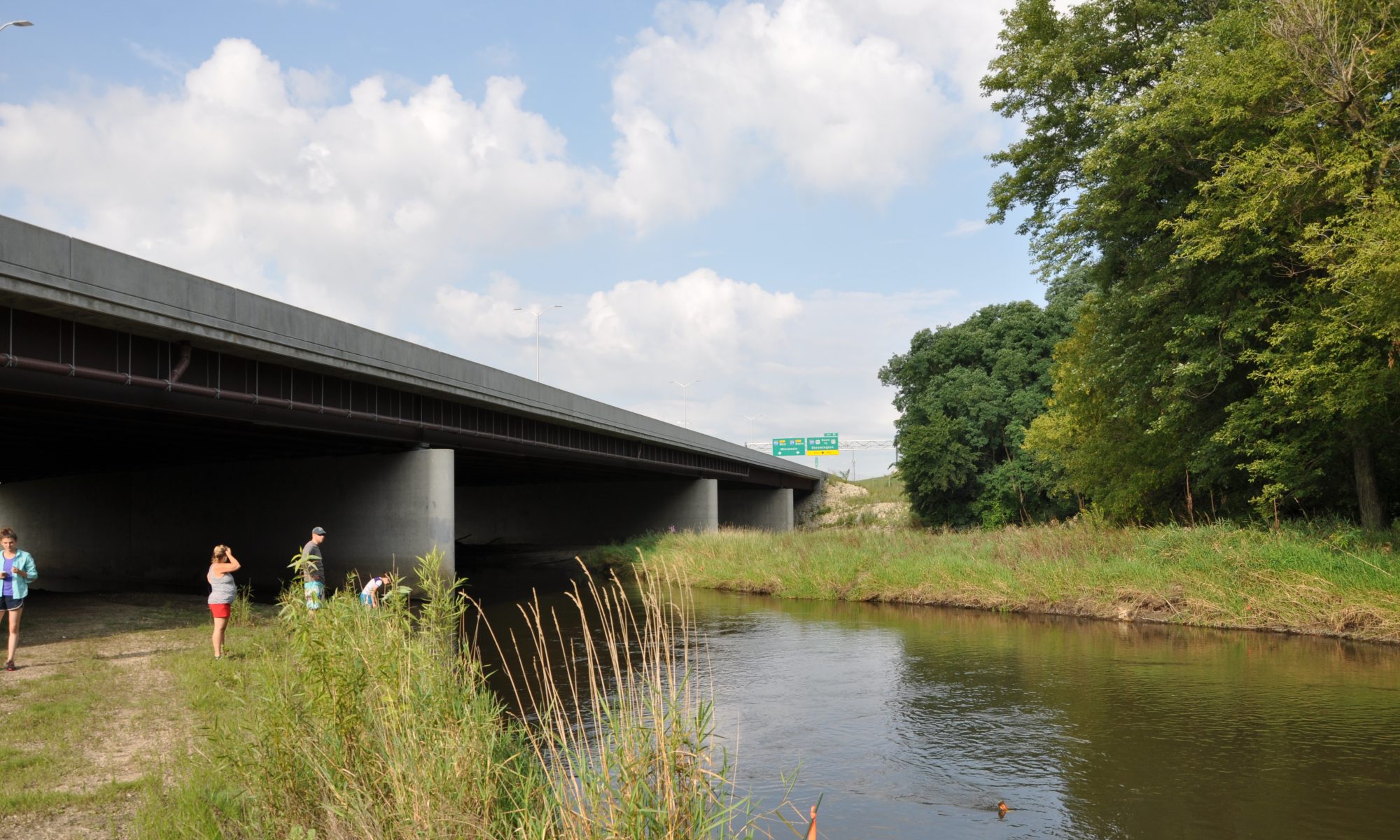In 2015, post construction, we conducted fish, mussel, aquatic macroinvertebrate, and bird surveys in the corridor and found:
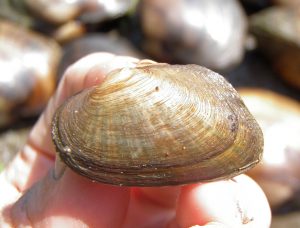
- 335 live individuals of 12 mussel species
- Three most common species were
White Heelsplitter – Lasmigona complanata,
Plain Pocketbook – Lampsilis cardium, and
Cylindrical Papershell – Anodontoides ferussacianus
- Captured live individuals of the state-threatened Slippershell Mussel – Alasmidonta viridis
For birds we conducted searches and circular plot counts and found
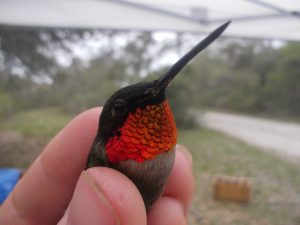
- 61 species of birds
- One state-endangered species, Osprey, at three locations
- sparrows were the densest species group overall
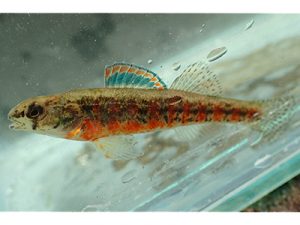
We used minnow seines and backpack electroshockers to survey.
In 2015 :
-
- encountered 46 of the 192 fish species native to Illinois,
- 3 state-listed species
>Iowa Darter
>7 Gravel Chub
>1 American Brook Lamprey
There was no significant difference in species richness, community evenness, and species diversity compared to our 2012 samples
In 2017:
In the Kishwaukee River
-
- 32 species of fish
- 4 species intolerant of poor water quality
For aquatic macroinvertebrates we used the ILEPA 20-Jab Allocation Method 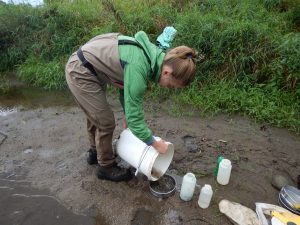 for wadeable streams.
for wadeable streams.
-
- Based on habitat assessment sites ranged from “Poor” to just under “Good”
- Based on macroinvertebrates present, the Kishwaukee River rated “Excellent,” Coon and Mosquito creeks “Good,” and Spring Creek “Fair”
- We had no pre-construction samples so could not assess if construction had impacted the streams.
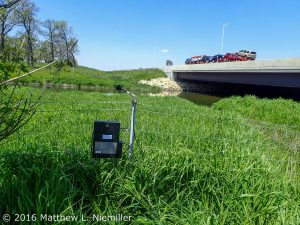
In 2016, we deployed acoustic monitors at 4 stream crossings
-
- recorded in May, July, and September.
- over 15,000 bat passes recorded
- 10,566 were identified by software
Nine species of bats were detected: Big Brown Bat, Hoary Bat, Eastern Red Bat, Silver-haired Bat, Little Brown Bat, Tri-colored Bat, Evening Bats, and 2 federally listed species: the NLEB and Indiana Bat.
